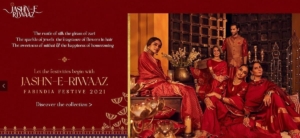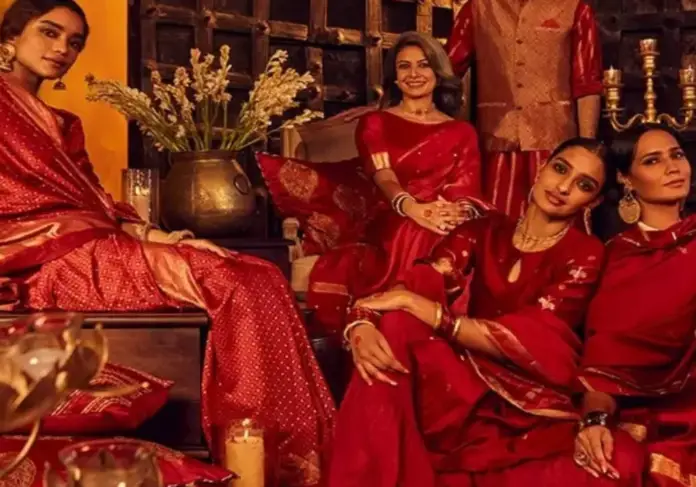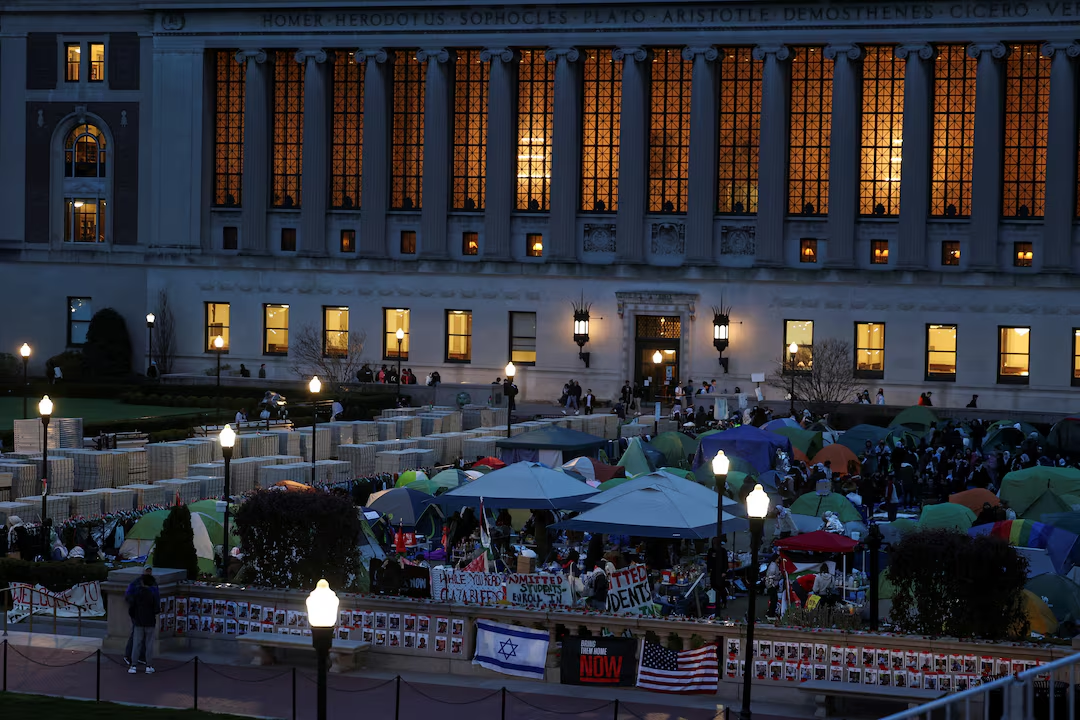We have always seen and heard that art has no boundaries. There is no fence in the world that can stop people from appreciating art, culture, and artists from different communities and around the world. But in recent events in neighboring India, ideas and creativity have seen a setback.
After two famous brands Tanishq and Manyaavar, Fabindia, has come under fire for their latest campaign.
The retailer Fabindia, famously known for their kurta collections, has had to withdraw their latest campaign of a new festive line, after receiving serious criticism from right-wing Hindutva groups.
The latest festive collection of clothes in bright red color was titled ‘Jashn-e-Riwaaz’, which is an Urdu term that means ‘celebration of tradition’.
The right-wing mob accused the brand of using Urdu language – spoken all over the sub-continent – for a collection that is being launched for the Hindu festival of Diwali.

Urdu, the language of Sub-continent
One of the biggest industries of India, Bollywood also makes most of its movies and songs in the Urdu language. Having a rich history in South Asia, Urdu has given some of the most powerful poets and artists to this continent over the centuries.
Many famous writers, composers, musicians, whose native language was Urdu, are still being celebrated in India.
But in recent years, with all other things under attack, the use of Urdu has also caused polarization in the country, as most of the Muslim community speaks the language. The right-wing Hindutva groups have even threatened to boycott the brand, since according to them, Urdu should not be used to describe Hindu festivals and rituals.
According to local media reports, a spokesperson from Fabindia has said that the said collection was not meant for Diwali. Still, the brand has taken down its campaign.
With increasing threats from right-wing groups and rising intolerance, the debate and discussion on interfaith harmony is slowly dying in ‘secular’ India.







